It is no secret that drinking water has plenty of health benefits. If "drink more water" is your mantra, one way to set yourself up for success is to make sure you've always got drinking water handy. That requires portable water bottles, easy-to-grab water cups, and possibly even larger storage containers on the countertop or in the refrigerator. That leads us to our topic question: what makes the best type of container for both storing and drinking water? We've devoted time to researching this question to help you on your quest to drink more water.
Today, safe and healthy containers for drinking water are made of plastic, glass, and stainless steel. Our research leads us to assert that glass and stainless steel are the best types of water containers, followed by plastic. While each of these containers has legitimate pros and cons, the best drinking water container for you depends on your usage and preferences.
Do you have more questions about these three different types of containers? Keep reading as we further dissect the advantages and disadvantages of each type of container. We'll also cover some other common questions related to water storage.
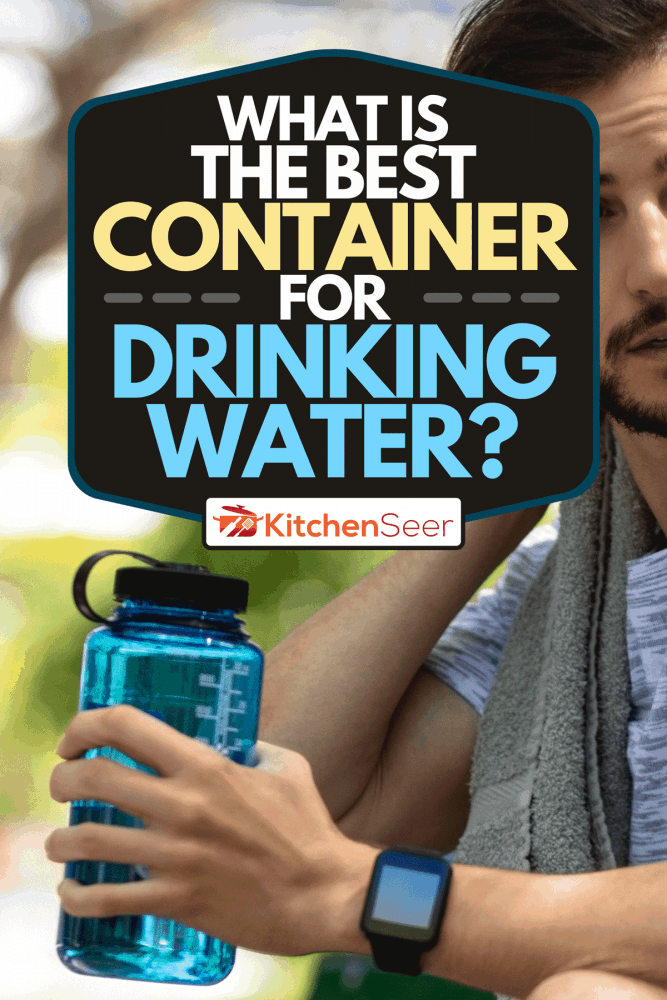
Best Container For Drinking Water
Water Containers Made Of Glass
Glass is an excellent material for storing drinking water that has few cons. Predating plastic and stainless steel by a long shot, glass continues to be used to make reusable water bottles, drinking glasses, pitchers, and storage jars that are all used for drinking water. The Washington Post quotes expert John Swartzberg of the University of California at Berkeley School of Public Health as saying, "Glass would be the best [safety-wise] if it didn't break." Here are a few of the reasons why:
- Glass is food-safe and can be heated and cooled without fear of leaching chemicals. We will discuss leaching in more detail later in this article.
- Glass does not absorb odors or flavors, so there is no fear of developing a bad taste or smell.
- Glass is easy to wash and dishwasher safe!
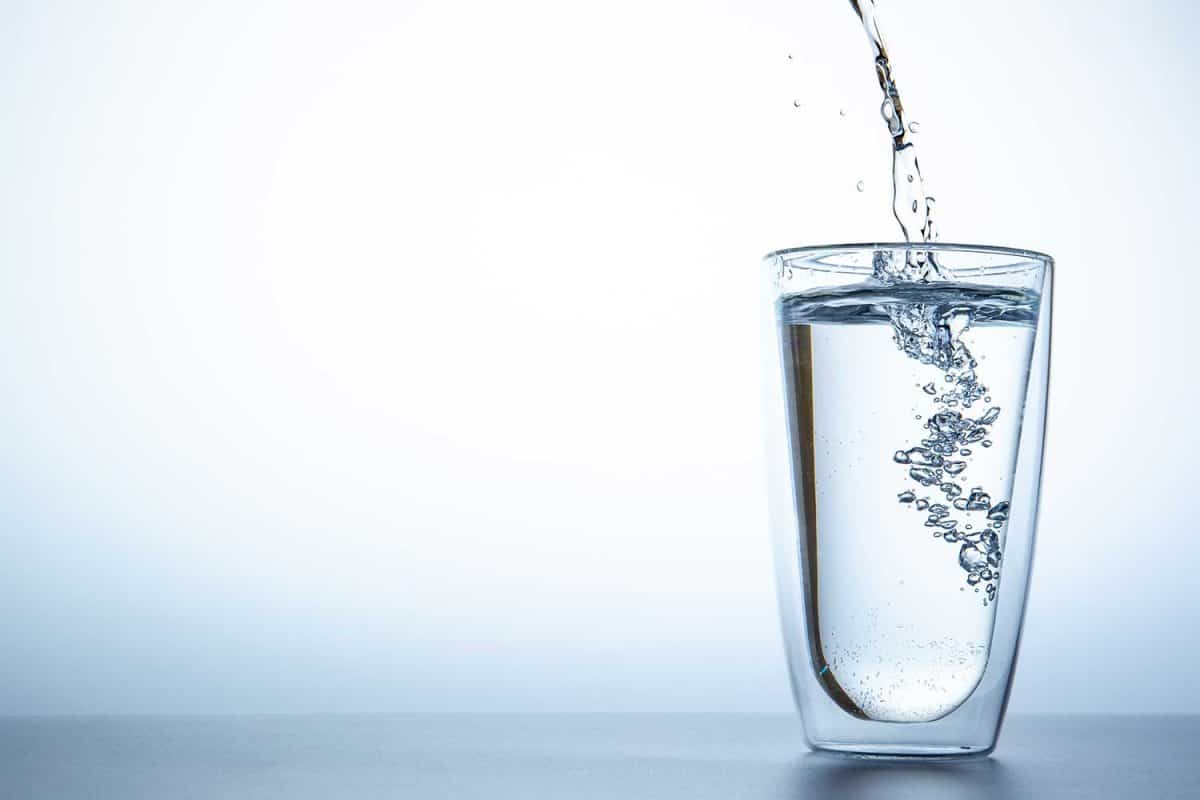
The biggest downside of glass is its breakability. It is also significantly heavier than containers made of plastic or stainless steel. Both of these factors are deterrents for use by the youngest members of our population. Many glass water bottles have added silicone sleeves to their products to improve their durability and protect them from breakage.
Click here to see one of these silicone-wrapped glass bottles on Amazon.
Water Containers Made of Stainless Steel
Stainless steel is another material used to make water bottles and other water storage containers. Stainless steel water drinking vessels have skyrocketed in popularity in recent years and are touted as an eco-friendly option for drinking water.

Is it safe to drink from stainless steel water bottles?
Because trendiness can't predict the safety of a product, let's consider the question of whether stainless steel water bottles genuinely are safe to drink from. The answer is yes; stainless steel is suitable for drinking water. Similar to glass, leaching toxins are not an issue with stainless steel. That's great news! Also, stainless steel is known to be odor and flavor-resistant. That being said, some users do report a metallic taste when using stainless steel water bottles.
Tree Tribe, a manufacturer of stainless steel water bottles, offers the following solution to ridding your bottle of any metallic taste. First, give it a rinse with soap and water before first use. If a metallic taste persists, add a teaspoon of either baking soda or vinegar to the bottle, top it off with soapy water, and let soak for a couple of hours.
Click here to find Tree Tribe's insulated stainless steel bottles on Amazon.
More advantages and disadvantages of Stainless Steel
Another advantage of stainless steel bottles is that many of them are insulated and can keep water cool (or warm) for extended periods of time.
Beware that stainless steel is easily dented if you drop your bottle frequently.
Water Containers Made of Plastic
The internet is full of heated opinions on whether or not you should use plastic for drinking. Some claim that all plastics are toxic and should never be used, while others trust the FDA's testing process that determines which plastic products are food-safe. With such mixed messaging, it is no wonder that many people find themselves confused about using plastic drinking vessels. Our government tells us they are safe, yet popular opinion often refuses to accept that verdict. Who is correct?
Which plastic is safe for drinking water?
The concern about drinking out of plastic containers stems from the concept of leaching, meaning that chemicals in plastic are thought to seep out into the drinking water, which humans then consume. Some types of plastic are more prone to leaching than others, so to best answer this question, we need to know more about the types of plastic manufacturers use.
You've probably noticed a small triangle-shaped symbol with a number inside it stamped into the bottom of household items made of plastic. These numbers ranging from 1 to 7 are called Resin Identification Codes, each denoting a specific type of plastic and are used for sorting plastics for recycling purposes. The plastic components with resin numbers 1, 2, 4, and 5 are generally considered safe for drinking water and storing food.
You may have also heard that plastics containing BPA (Bisphenol A) should be avoided. In response to public concern over BPA's safety, many manufacturers removed it from products and labeled them BPA-free. However, the FDA's current stance on BPA is that it is safe to use in plastics that have contact with food. If you wish to avoid BPA and any harmful effects it may have, take extra precautions to stay away from plastics with resin number 7.
One manufacturer that has removed BPA from its water bottles is Nalgene.
Click here to see a BPA-free plastic Nalgene water bottle on Amazon.
Advantages and Disadvantages of Plastic Water Containers
Now that we know that some plastics are considered safe for drinking water, there are a couple of other reasons you may choose plastic. It is lightweight, highly durable, widely available, and inexpensive.
On the negative side, despite assurance otherwise from the FDA and industry regulatory bodies, many people have remaining fears that plastic containers will leach toxins into drinking water. If you are concerned about leaching, hand wash your plastic containers, taking care not to scratch their surfaces. Also a con, plastic tends to absorb odors and flavors, leaving unpleasant smells or flavors behind in water containers.
Is it better to drink out of glass or plastic?
Let's turn to an expert to answer this question for us. Because there are many unknowns about chemicals used in plastic production, an endocrinologist and professor at the University of Massachusetts at Amherst, R. Thomas Zoeller, prefers glass or metal over plastic drinking water containers.
Water Storage
A topic that complements our discussion of the best types of containers for drinking water is water storage. Keep reading as we answer a few more common questions about safe water storage.
How long can you leave water in a Brita?
To answer this question, we headed directly to Brita's website. Their answer was vague at best. Brita recommends that you store your filter pitcher in a cool, dark location away from direct sunlight and put it in the refrigerator if you will be away for more than a couple of days.
Click here to see a Brita Everyday Water Filter Pitcher on Amazon.
How long can filtered water be stored?
If you use any water filtration system, you may be curious how long you can store the water you filter. Billi, a manufacturer of water filtration systems, offers the following recommendations. If you store filtered water in a closed container in the refrigerator, it should last a few weeks. If you prefer your drinking water at room temperature, it is best to leave it out for not more than a few hours.
How long can you safely store tap water?
The CDC gives guidelines for water storage for emergency preparedness. If you follow their guidelines and store tap water in thoroughly sanitized food-grade water storage containers it is good for 6 months. Once you open a container, however, the safety of the water inside may be compromised as particles may creep in and potentially contaminate the water.
How long can you keep water in a stainless steel bottle?
Microbiologist and germ expert James Gerba of the University of Arizona was asked a similar question about whether it is okay to drink the old water in your water bottle. As long as you aren't sharing your bottle, he believes it is fine to drink old-ish water since the germs it contains are your very own. While there is no definitive answer to this question, keep in mind that stainless steel has some resistance to bacteria and mold that helps keep stored water safe for longer than plastic.
Can I put lemon in my stainless steel water bottle?
The best answer we could uncover for this question is probably. It is most likely safe to add lemon to water in your stainless steel water bottle. Manufacturers have little to say about the matter, but stainless steel containers are not bothered by your lemon water, according to Columbia University health professionals.
In Closing
We've walked through the pros and cons of glass, stainless steel, and plastic containers for drinking water. While glass and stainless steel are preferred, there are good safe plastic options as well. Reusable bottles are always superior to single-use water bottles, so whatever choice you make is sure to be a good one!
If you found this article helpful, here are a couple of our other posts you might enjoy.
How Many Drinking Glasses Should You Own?
Are Plastic Food Containers Dishwasher Safe?





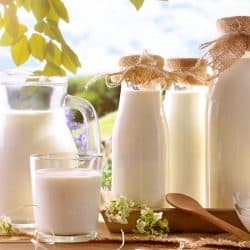
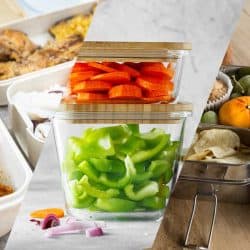
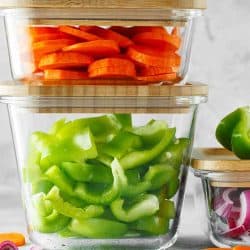

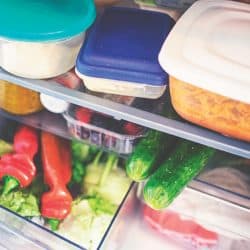

This article it’s excellent
Great post! Stainless steel bottles are indeed convenient to use. I like how they are insulated and sweat-resistant.